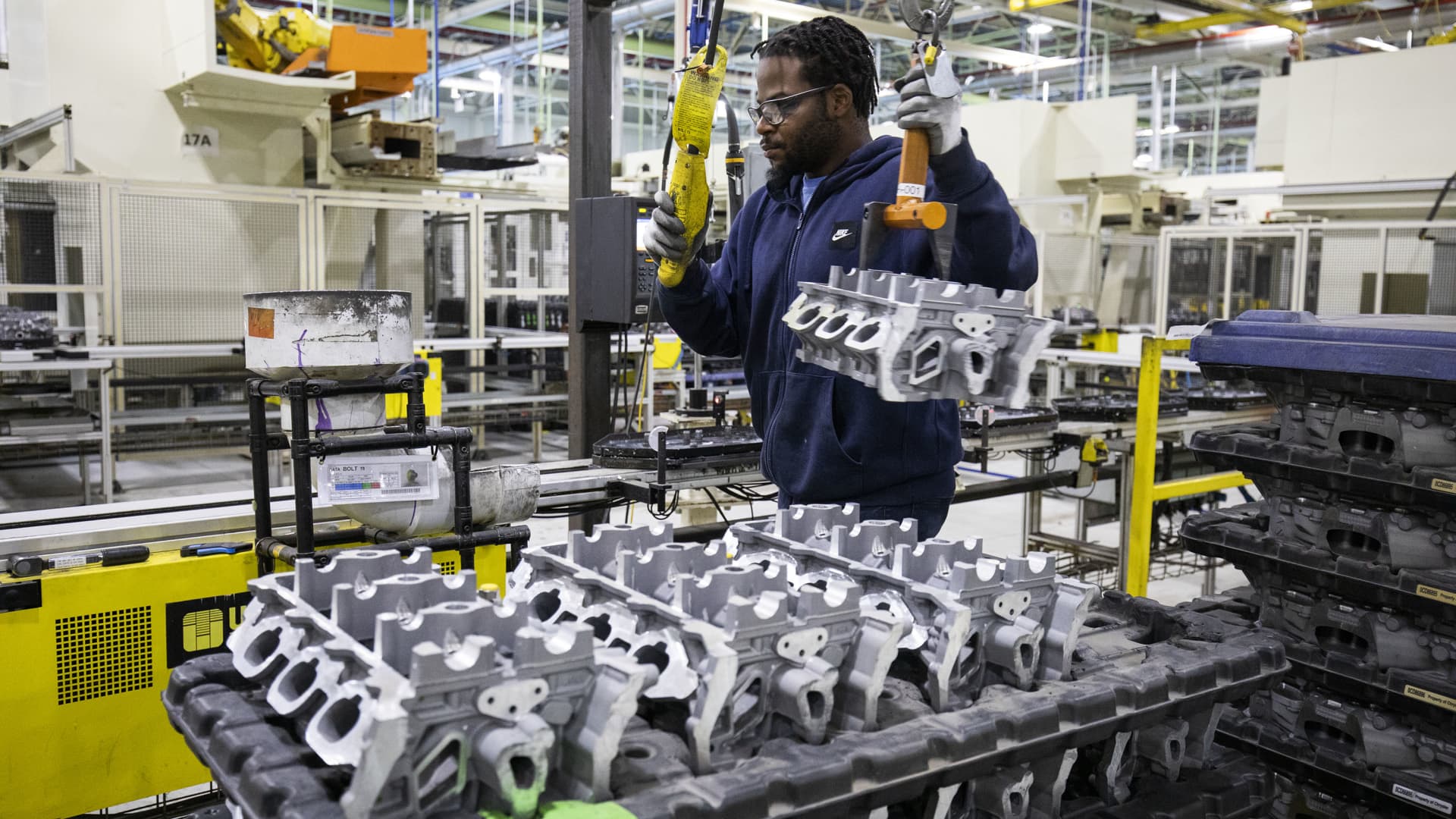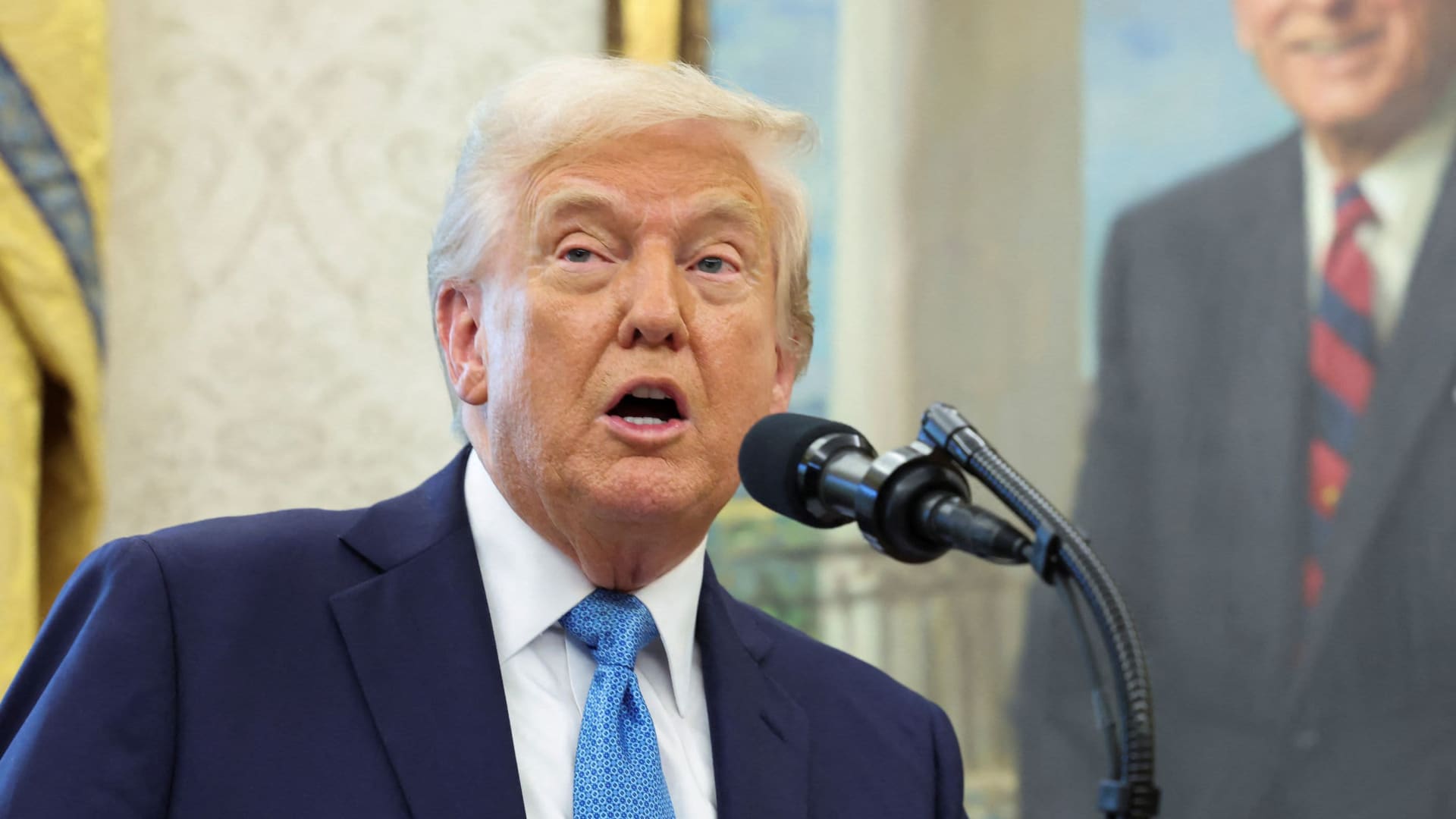Now Reading: Auto groups lobby Trump administration against parts tariffs in rare unified message
-
01
Auto groups lobby Trump administration against parts tariffs in rare unified message
Auto groups lobby Trump administration against parts tariffs in rare unified message

Jamell Harris is seen loading raw casting heads for manufacturing at the Stellantis Dundee Engine Complex in Dundee, Michigan on August 18, 2022.
A coalition of six major policy groups from the U.S. automotive industry has come together to oppose the impending 25% tariffs on auto parts that are scheduled to be implemented by May 3. The group, which includes franchised dealers, suppliers, and most major automakers, has sent a letter to the Trump administration expressing concerns that these tariffs could have severe consequences on U.S. automotive production. They highlighted that many auto suppliers are already struggling and would be unable to absorb the additional cost hikes, potentially leading to wider industry issues.
The letter, dated April 21, is directed to U.S. Treasury Secretary Scott Bessent, U.S. Department of Commerce Secretary Howard Lutnick, and U.S. Trade Representative Ambassador Jamieson Greer. It is signed by the leaders of various industry organizations, such as the Alliance for Automotive Innovation, American International Automobile Dealers Association, and National Automobile Dealers Association, among others.
This collective action is unusual for the automotive sector, as these groups rarely unite to deliver a singular message. They emphasize that the industry is a crucial driver of the U.S. economy, supporting millions of jobs and contributing trillions of dollars annually. The letter also mentions that some automakers like Tesla Motors, Rivian Automotive, and Lucid Group are not part of these industry groups.
The industry is hopeful for a reconsideration of the proposed tariffs, with President Trump expressing willingness to review the situation. The potential impacts of the tariffs on auto suppliers are deemed more severe than on the automakers themselves, which could lead to disruptions in the global supply chain, affecting vehicle sales and prices.
The letter concludes by emphasizing the importance of supporting domestic manufacturing and supply chains but acknowledges that redirecting global supply chains to the U.S. will require time and cannot be achieved overnight.






